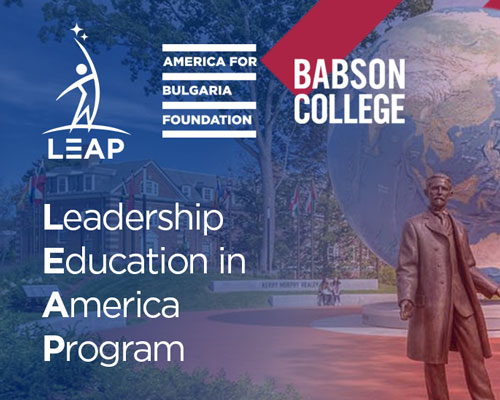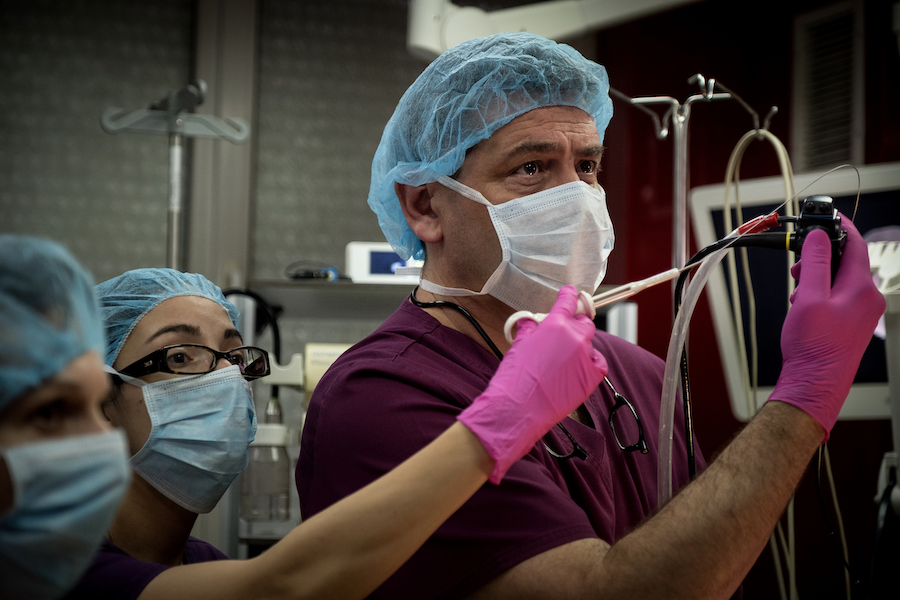 Unlike the superhumans of Hollywood, these superheroes don’t wear fancy attire. Most of what they put on is disposable. They are of few words, and their (often wry) sense of humor bewilders most ordinary humans. In other respects, they are just like us: They are superstitious, which is why they’ll wear a lucky charm or a favorite piece of clothing for difficult surgeries. They don’t like delivering bad news. They celebrate their favorite sports teams’ victories.
Unlike the superhumans of Hollywood, these superheroes don’t wear fancy attire. Most of what they put on is disposable. They are of few words, and their (often wry) sense of humor bewilders most ordinary humans. In other respects, they are just like us: They are superstitious, which is why they’ll wear a lucky charm or a favorite piece of clothing for difficult surgeries. They don’t like delivering bad news. They celebrate their favorite sports teams’ victories.
Their superpower is their refusal to accept defeat. Day in, day out, they strive to fix the unfixable. They mend fractures, they sew tears, and they fight to reverse cardiac arrest. They save lives.
Because of the work of the thousands of doctors, nurses, and medical assistants who have provided emergency care over the past seven decades, Sofia’s Pirogov Hospital has become a byword for hope—for the place you go to in hopeless situations.
The following photo essay takes an intimate look at the work of these men and women, capturing the smiles, the frowns, the tension, and, above all, the hope and the gratitude.
Photos by Jodi Hilton
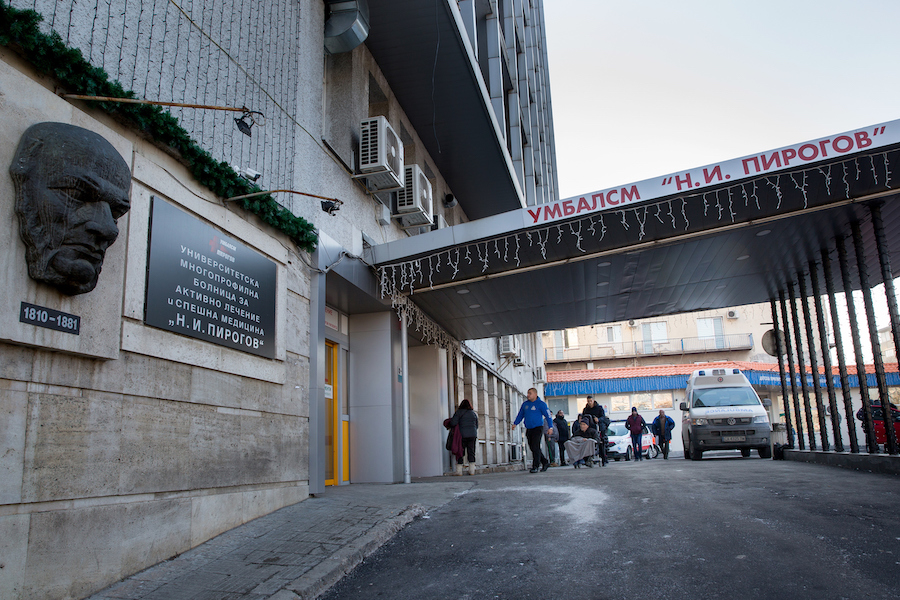 More than 2,200 people work at Bulgaria’s largest traumatology center, Pirogov Hospital. This photo essay will look beyond the concrete walls—at the work of the medical teams that fight to save lives daily.
More than 2,200 people work at Bulgaria’s largest traumatology center, Pirogov Hospital. This photo essay will look beyond the concrete walls—at the work of the medical teams that fight to save lives daily.
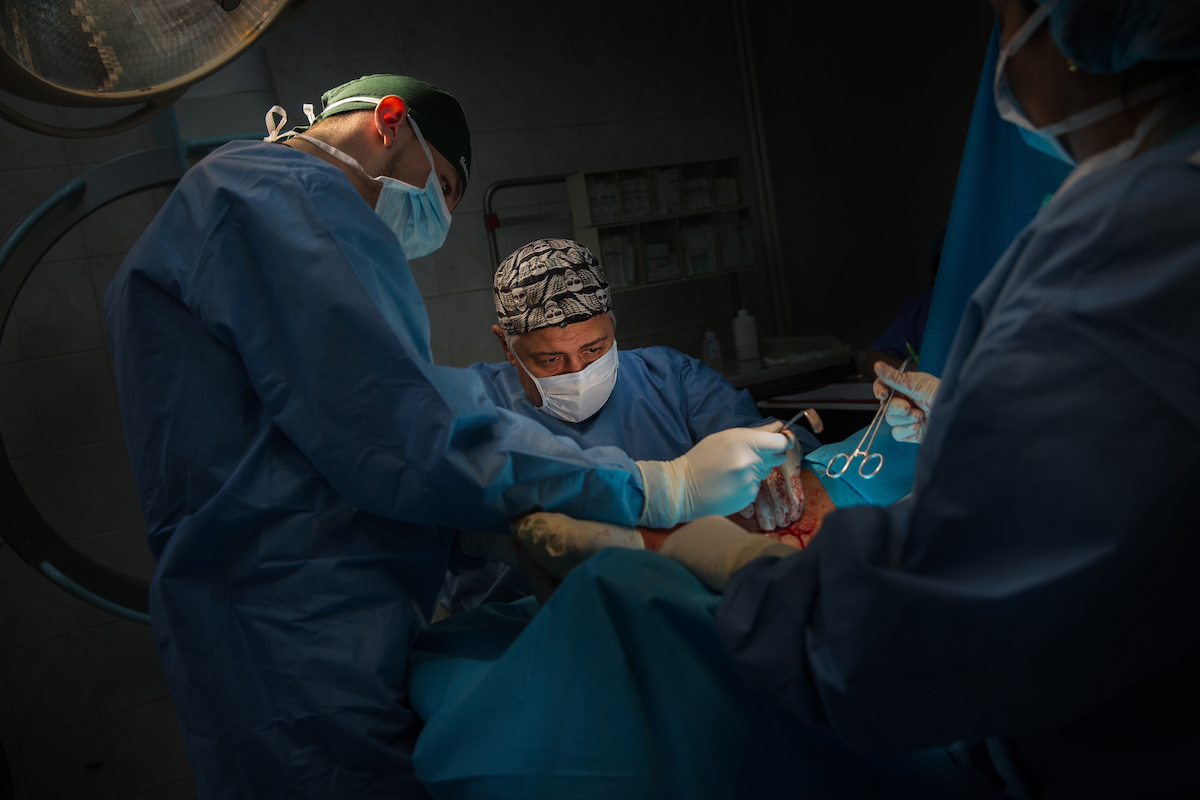 Professor Asen Baltov, MD, always operates with his favorite skull-patterned surgical cap.
Professor Asen Baltov, MD, always operates with his favorite skull-patterned surgical cap.
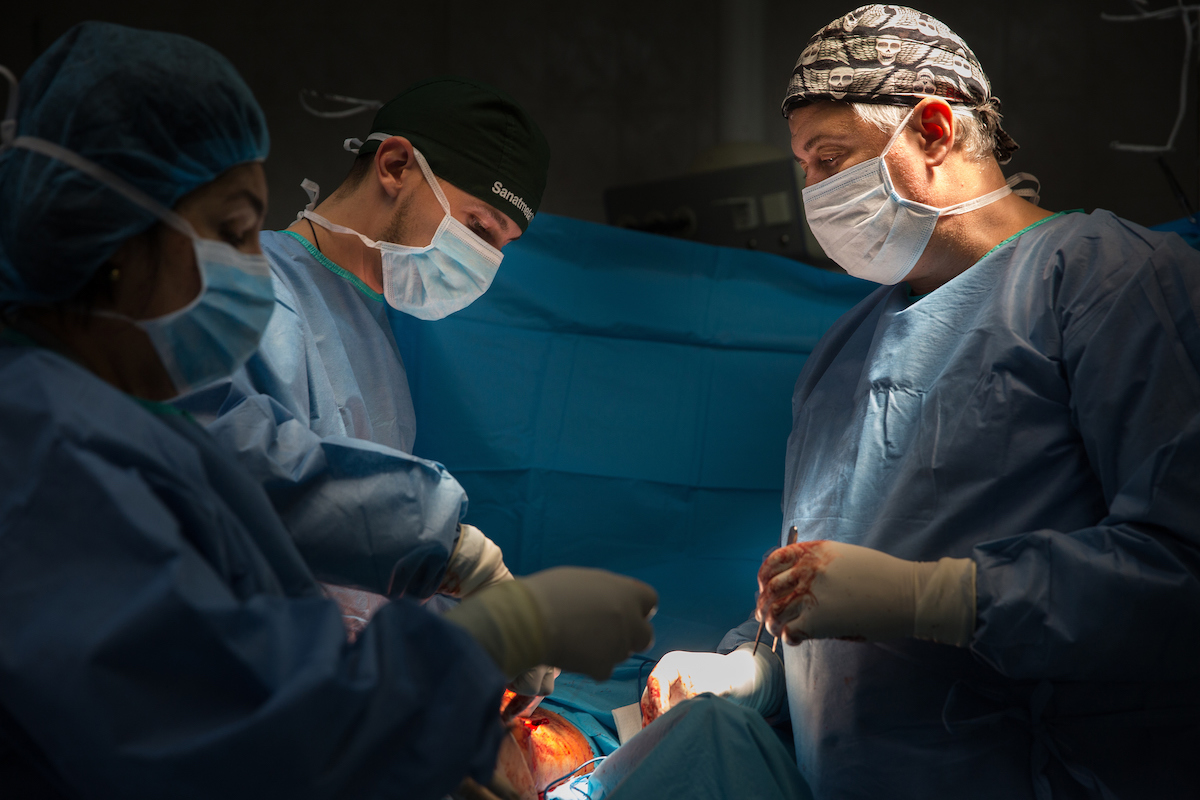 Dr. Baltov estimates that he has performed between 10,000 and 11,000 surgeries in his career so far.
Dr. Baltov estimates that he has performed between 10,000 and 11,000 surgeries in his career so far.
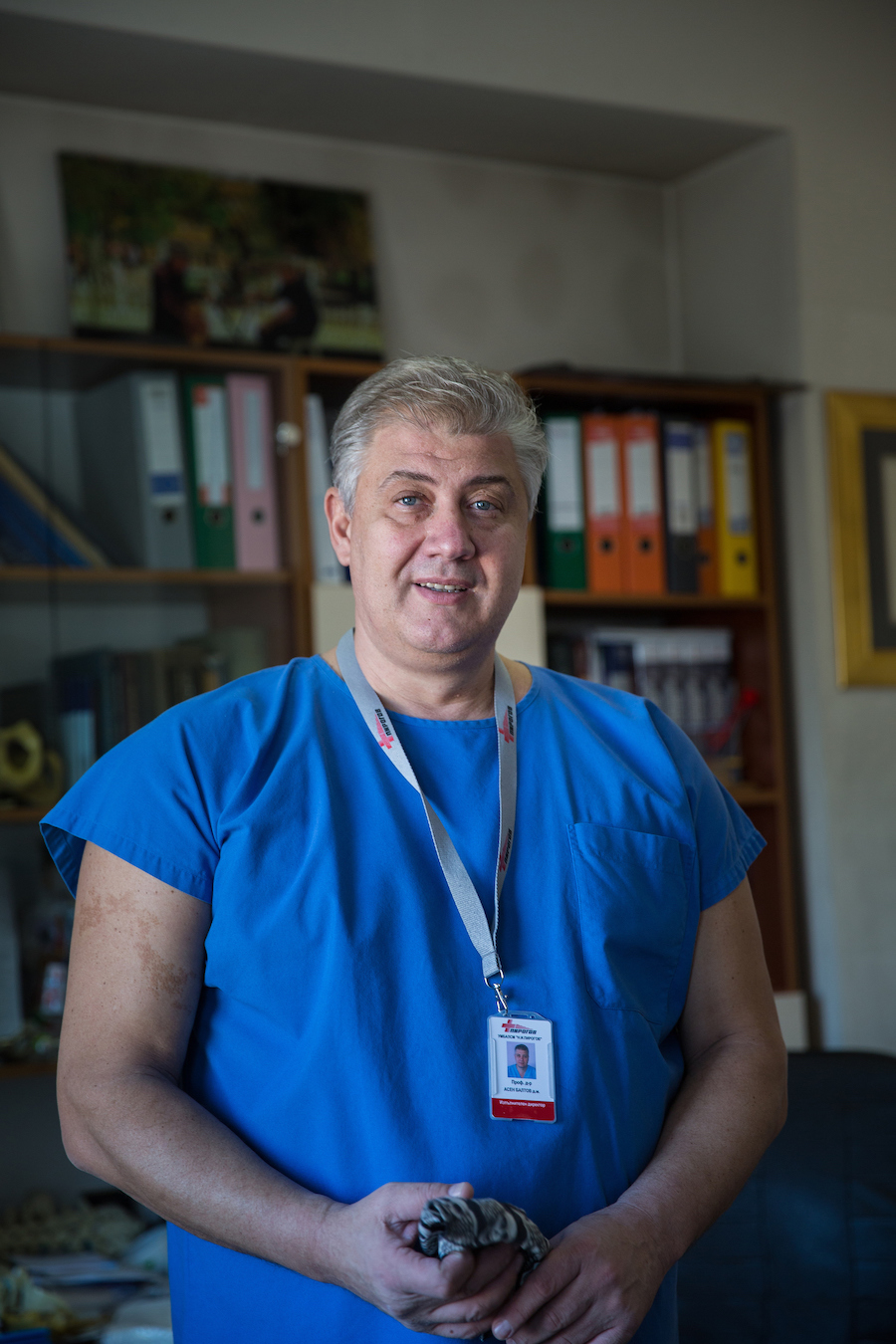 They say doctors carry the weight of both their patients’ joys and sorrows on their shoulders. This is why a strong build is an advantage, especially in an orthopedic surgeon. Dr. Baltov’s broad shoulders, however, are a legacy of his years as a professional rower in the Levski Spartak Club.
They say doctors carry the weight of both their patients’ joys and sorrows on their shoulders. This is why a strong build is an advantage, especially in an orthopedic surgeon. Dr. Baltov’s broad shoulders, however, are a legacy of his years as a professional rower in the Levski Spartak Club.
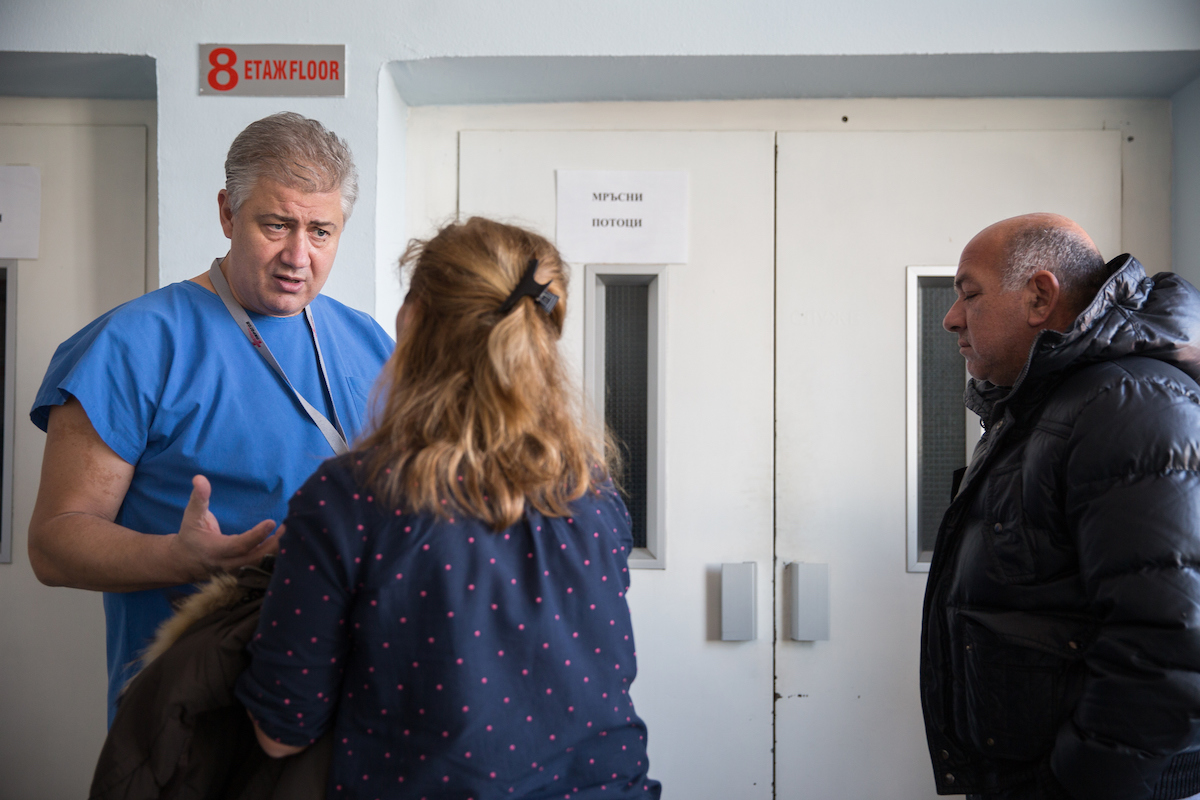 Dr. Baltov is a busy man. In addition to being a practicing surgeon, he is Pirogov’s executive director, so the best time to ask him a question is… while he is waiting for the elevator.
Dr. Baltov is a busy man. In addition to being a practicing surgeon, he is Pirogov’s executive director, so the best time to ask him a question is… while he is waiting for the elevator.
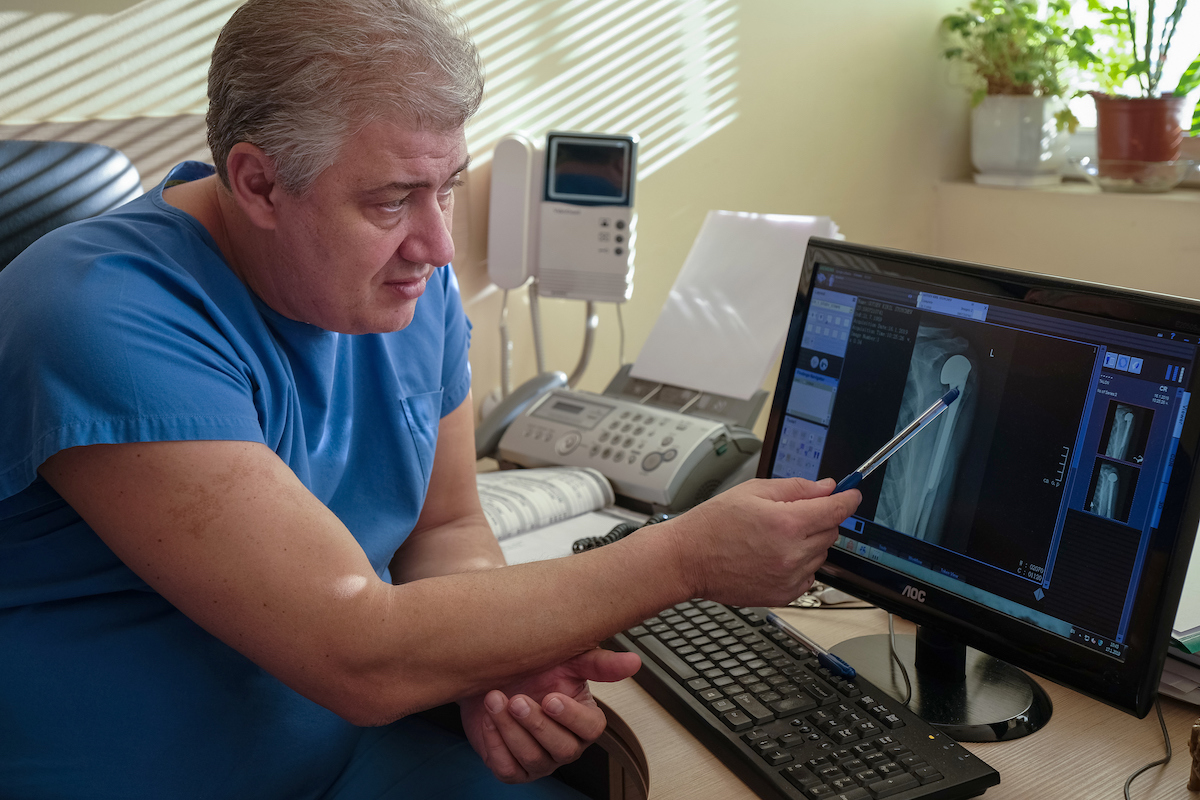 Dr. Baltov specializes in upper limb surgery. He is the author of the textbook Fractures of the Shoulder Blade.
Dr. Baltov specializes in upper limb surgery. He is the author of the textbook Fractures of the Shoulder Blade.
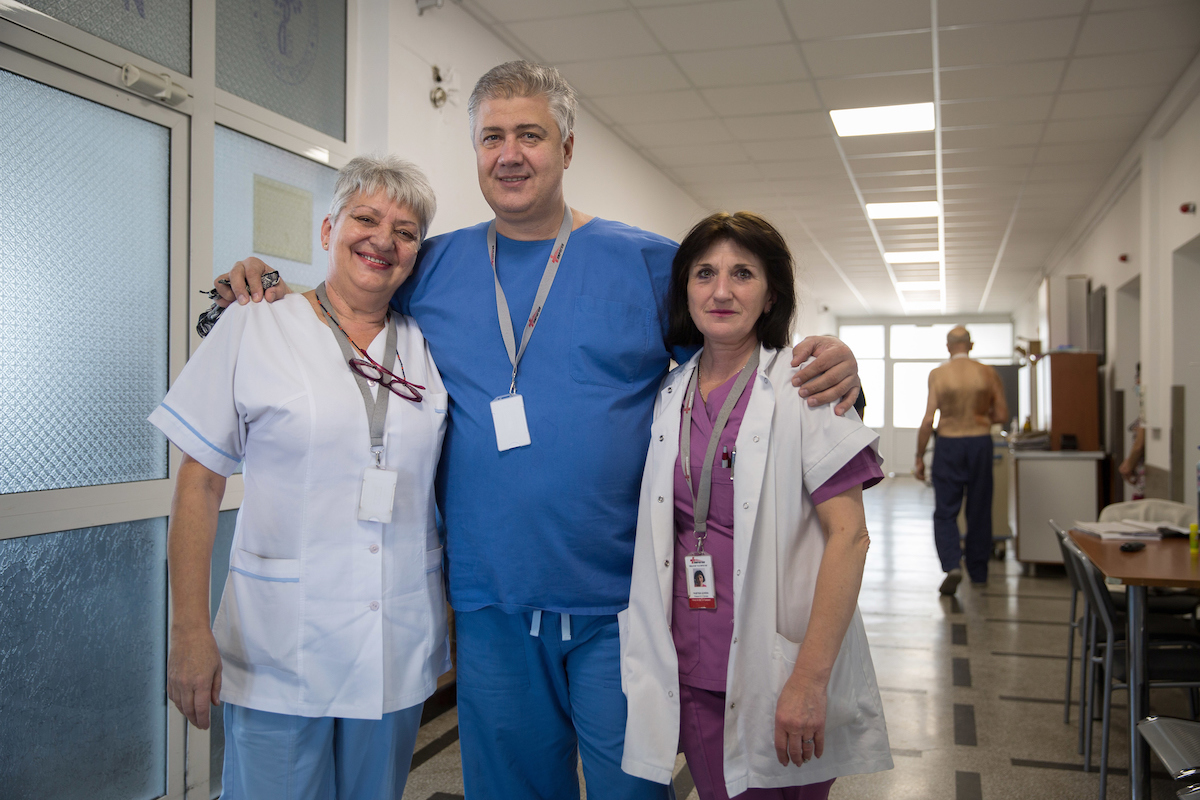 Yordanka Takova, medical secretary, Dr. Baltov, and head nurse Nadejda Doneva. Although the work of nurses, nursing assistants, janitors, and secretaries often remains unrecognized, these men and men are a vital part of the healing process and ensure that medical wards are run efficiently. And it is often said that nurses are “a doctor’s extra pair of eyes.”
Yordanka Takova, medical secretary, Dr. Baltov, and head nurse Nadejda Doneva. Although the work of nurses, nursing assistants, janitors, and secretaries often remains unrecognized, these men and men are a vital part of the healing process and ensure that medical wards are run efficiently. And it is often said that nurses are “a doctor’s extra pair of eyes.”
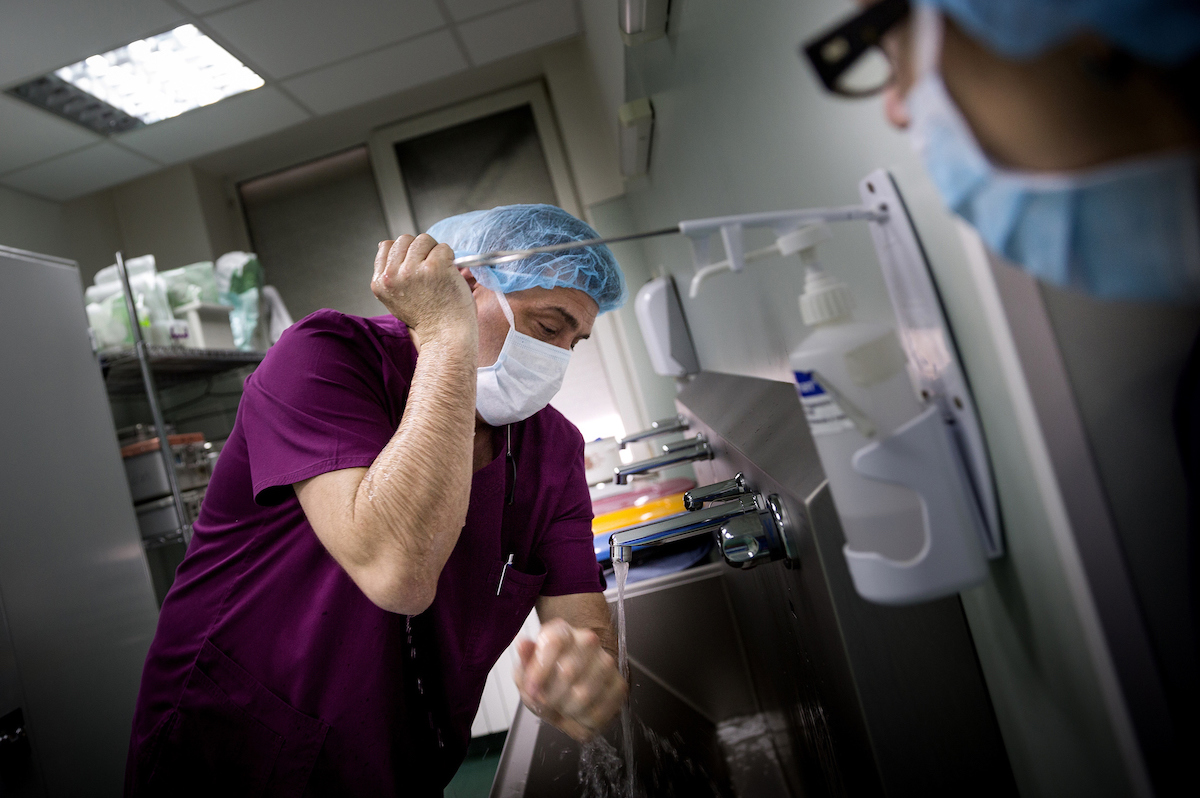 Hristo Shivachev, MD, is getting ready for a complex throat surgery on a two-year-old. Patients in the children’s surgical ward often end up there after swallowing toy parts or ingesting cleaning products.
Hristo Shivachev, MD, is getting ready for a complex throat surgery on a two-year-old. Patients in the children’s surgical ward often end up there after swallowing toy parts or ingesting cleaning products.
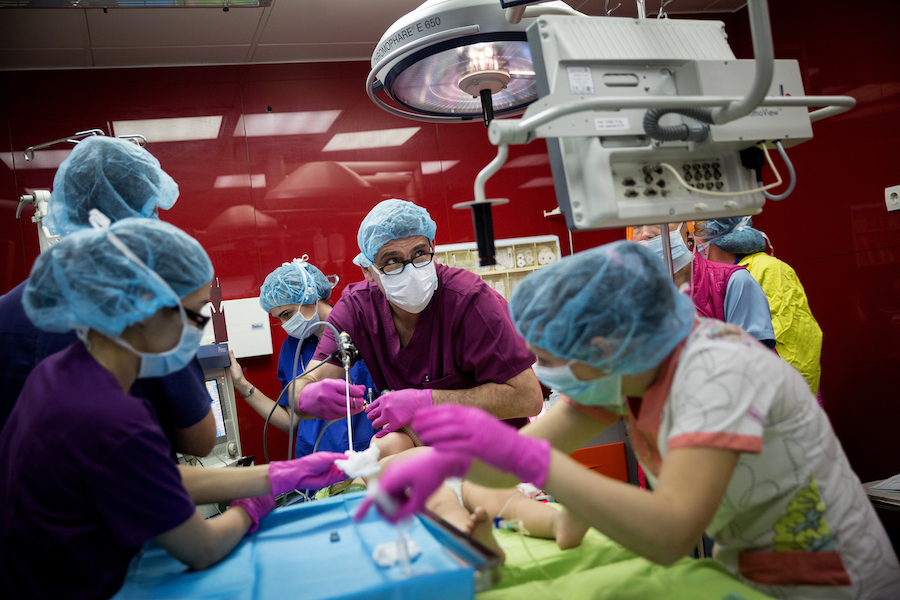 Although Dr. Shivachev is one of the superstars in children’s surgery in Bulgaria, he feels more at ease using a camera-tipped device during surgery than having his picture taken.
Although Dr. Shivachev is one of the superstars in children’s surgery in Bulgaria, he feels more at ease using a camera-tipped device during surgery than having his picture taken.
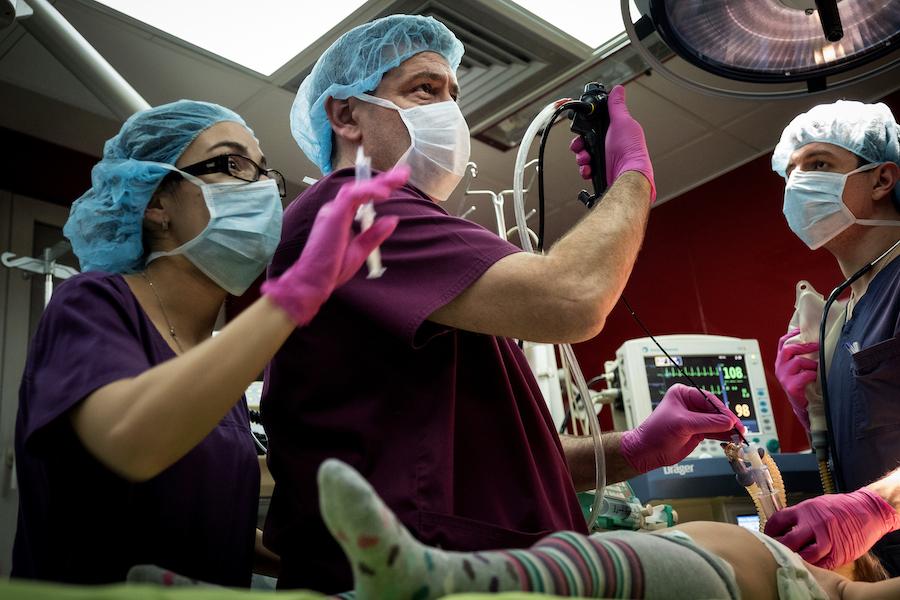 Surgical interventions can last anywhere from half an hour to over eight hours. As head of children’s surgery, Dr. Shivachev supervises or assists in all complex surgeries.
Surgical interventions can last anywhere from half an hour to over eight hours. As head of children’s surgery, Dr. Shivachev supervises or assists in all complex surgeries.
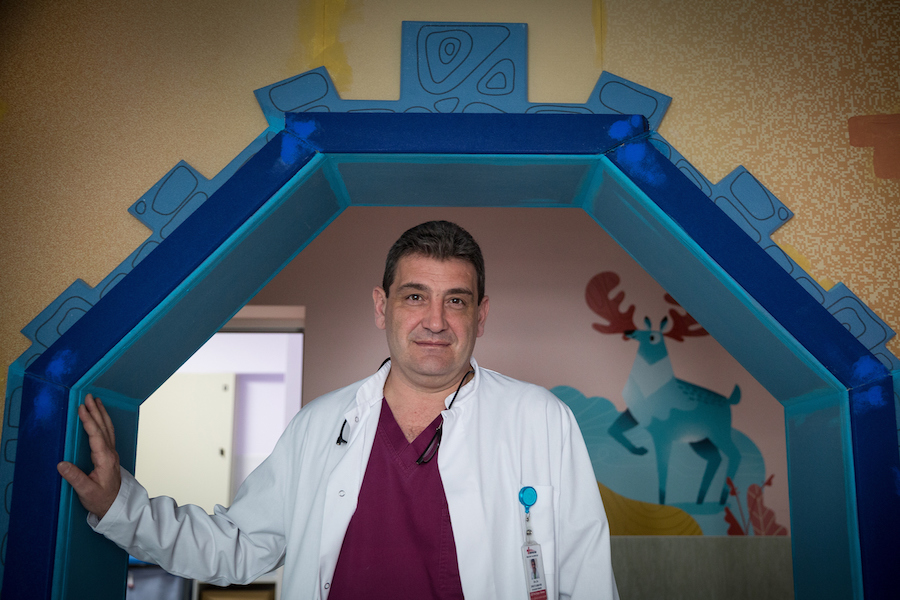 Dr. Shivachev is not a character in a fairy tale although in his daily work he is surrounded by fantastical beasts and fairy-tale creatures. The reason? In 2017, the “Little Heroes” campaign, supported by the America for Bulgaria Foundation and its corporate partners, refurbished the children’s clinics at Pirogov and transformed them into welcoming, attractive spaces for children and their caregivers. “The environment does matter,” Dr. Shivachev says, adding that his young patients often come back and ask to visit their favorite spot in the children’s cardiothoracic ward—Sophia’s Room, which features a reading room and a play area.
Dr. Shivachev is not a character in a fairy tale although in his daily work he is surrounded by fantastical beasts and fairy-tale creatures. The reason? In 2017, the “Little Heroes” campaign, supported by the America for Bulgaria Foundation and its corporate partners, refurbished the children’s clinics at Pirogov and transformed them into welcoming, attractive spaces for children and their caregivers. “The environment does matter,” Dr. Shivachev says, adding that his young patients often come back and ask to visit their favorite spot in the children’s cardiothoracic ward—Sophia’s Room, which features a reading room and a play area.
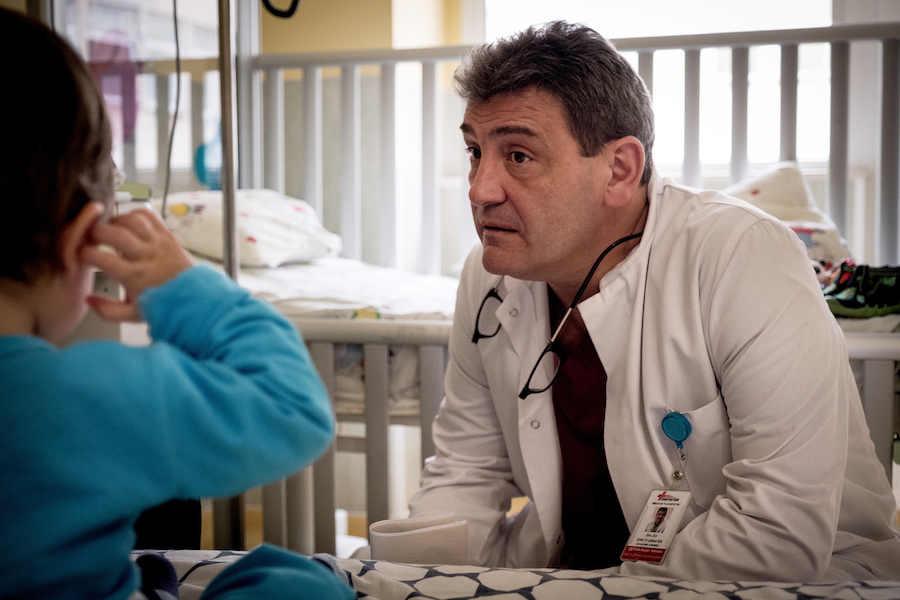 Dr. Shivachev’s superpower isn’t just his ability to cure pain. He also knows how to talk to his little patients—by getting down to their eye level and treating them with respect.
Dr. Shivachev’s superpower isn’t just his ability to cure pain. He also knows how to talk to his little patients—by getting down to their eye level and treating them with respect.
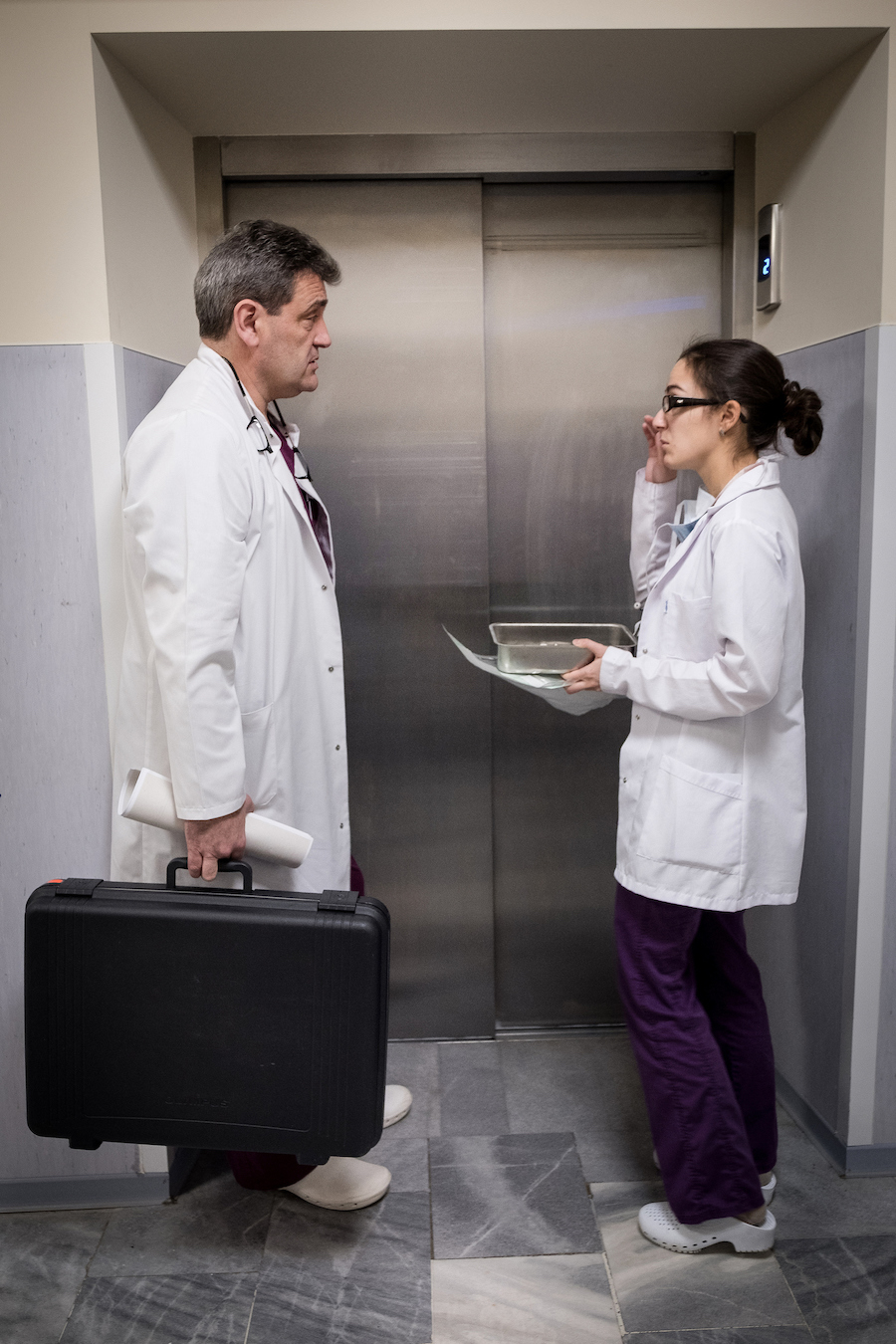 Pediatric surgery is a challenging specialty requiring training in general surgery, cardiothoracic surgery, and otolaryngology. Currently, there are seven residents pursuing the specialty at Pirogov.
Pediatric surgery is a challenging specialty requiring training in general surgery, cardiothoracic surgery, and otolaryngology. Currently, there are seven residents pursuing the specialty at Pirogov.
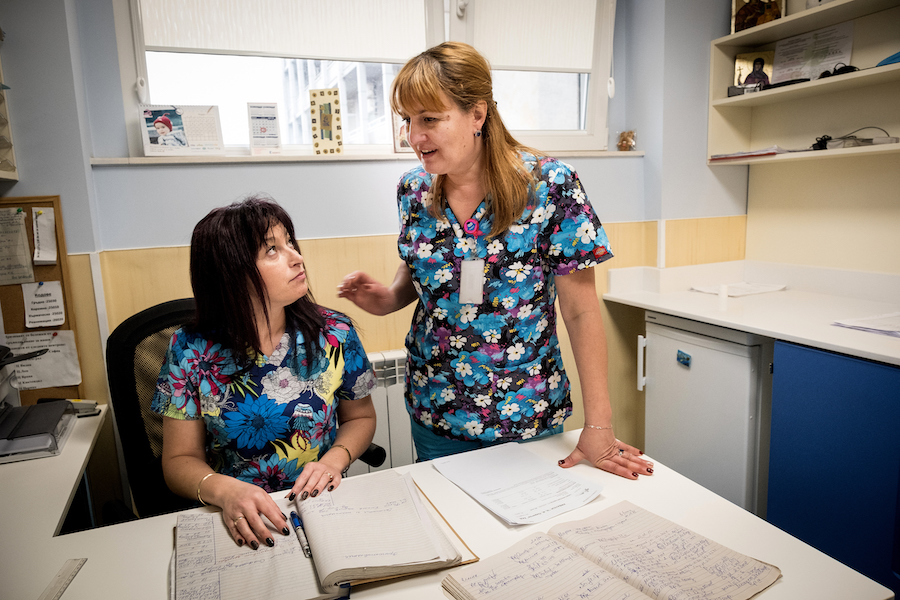 Nurse Diana Valovna’s and Head Nurse Rositsa Raykova’s flower-themed scrubs are not coincidental. Bright colors and lively designs are the norm in the children’s clinics as they help put children at ease.
Nurse Diana Valovna’s and Head Nurse Rositsa Raykova’s flower-themed scrubs are not coincidental. Bright colors and lively designs are the norm in the children’s clinics as they help put children at ease.
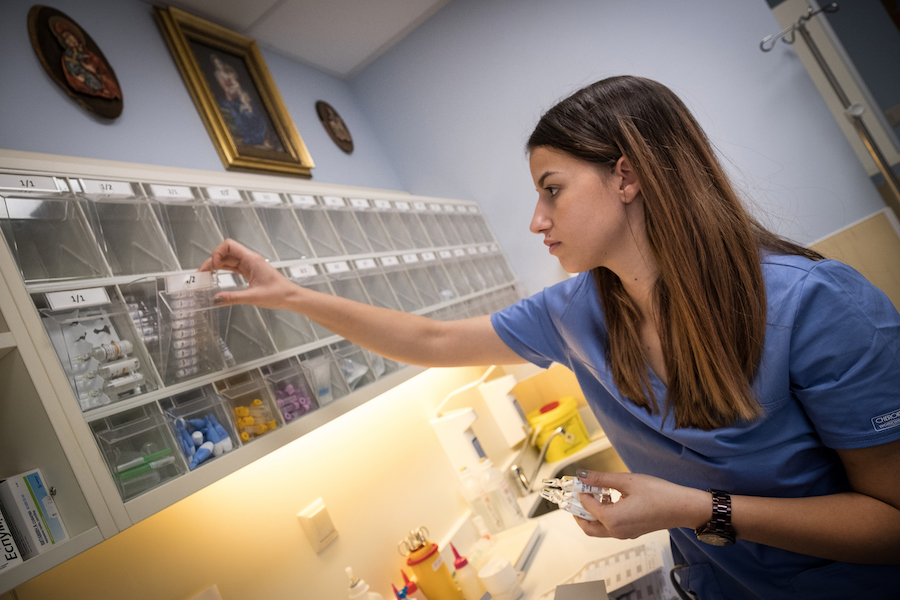 Medical assistant Elina Popova makes sure all patients take their medicine on time.
Medical assistant Elina Popova makes sure all patients take their medicine on time.
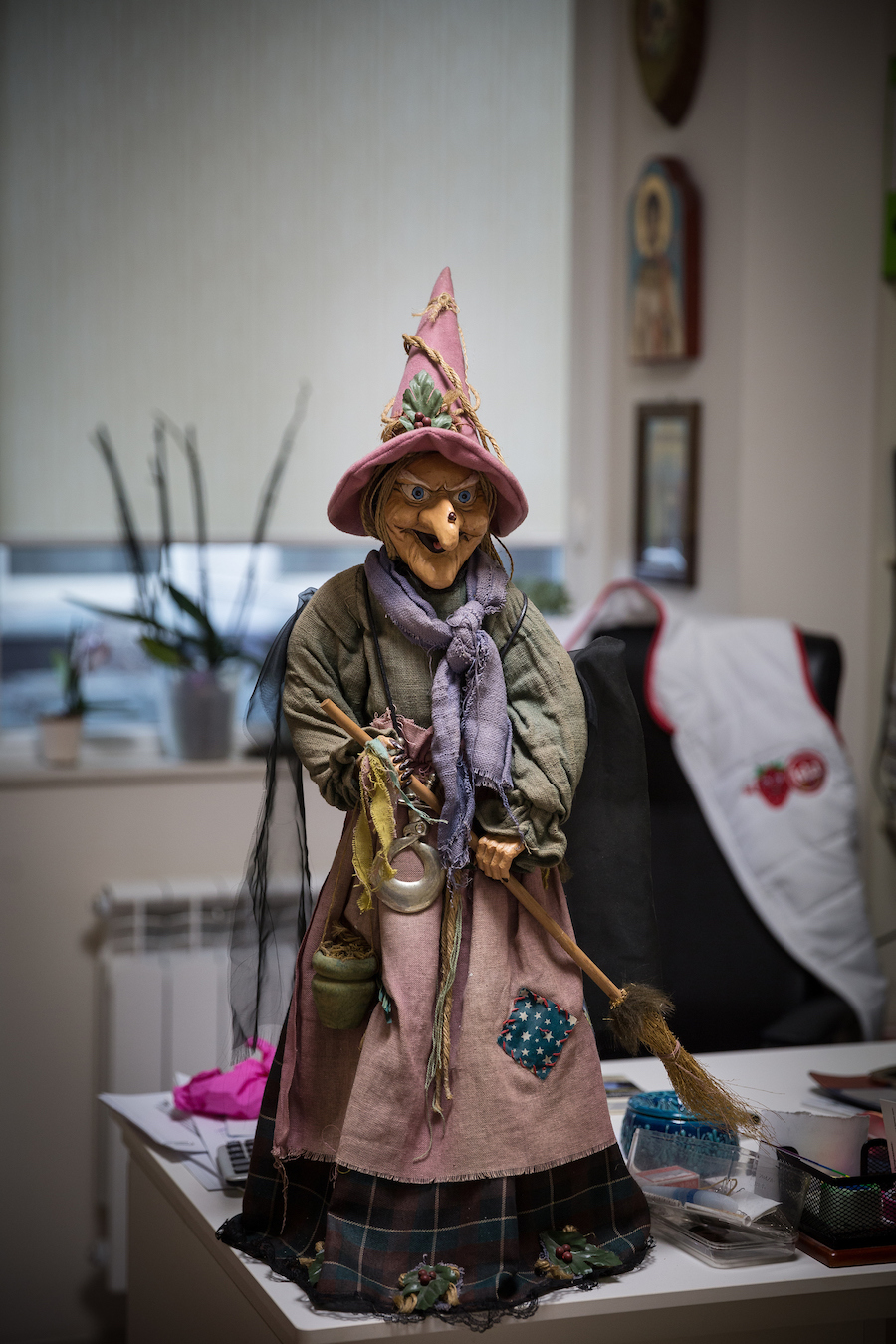 A two-year-old patient called her “Baba Vaga,” and the name stuck. Baba Vaga is the mascot of Children’s Cardiothoracic Surgical Ward. In addition to mopping up messes, she helps drive diseases away.
A two-year-old patient called her “Baba Vaga,” and the name stuck. Baba Vaga is the mascot of Children’s Cardiothoracic Surgical Ward. In addition to mopping up messes, she helps drive diseases away.
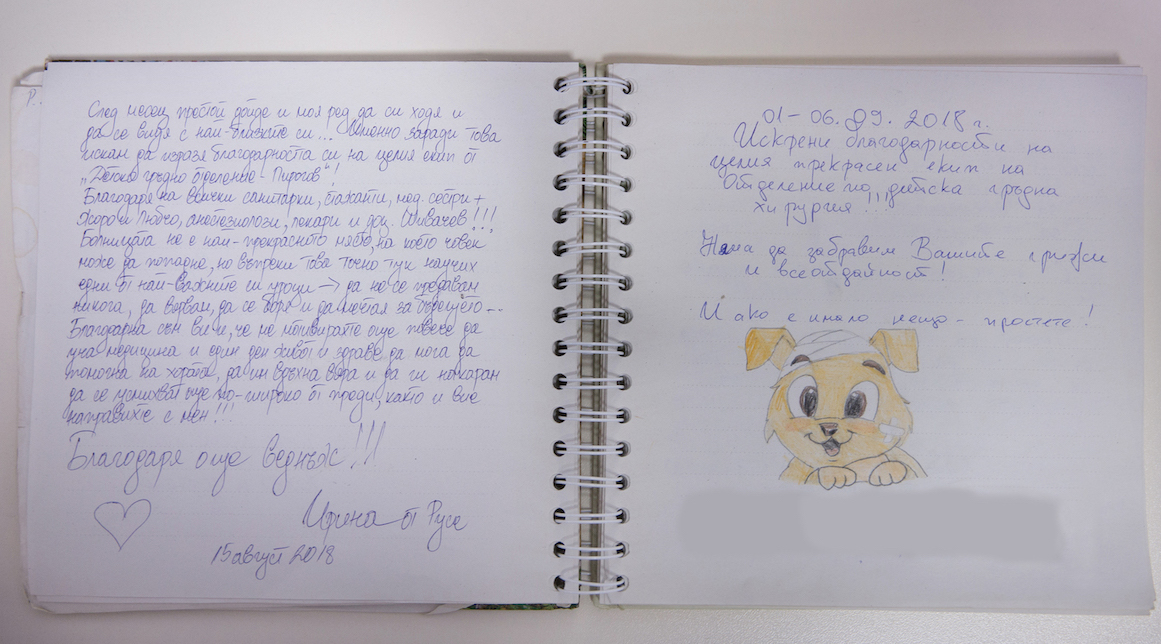 “After a month’s stay here, it is now my turn to go and see my closest people… This is why I want to express my gratitude to the whole team of the Pirogov Children’s Cardiothoracic Ward! Thanks to all the janitors, residents, nurses + Joro and Ljubcho, anesthetists, doctors, and Doctor Shivachev in particular!!! The hospital is not the most wonderful place to be, yet it was here that I learned some of the most important lessons—to never surrender, to believe, to fight, and to dream about the future… I am grateful to you for motivating me to study medicine so that one day I can help people, give them faith, and make them smile even more than before—as you did with me!!! Thanks again!!! Irina from Ruse August 15, 2018”
“After a month’s stay here, it is now my turn to go and see my closest people… This is why I want to express my gratitude to the whole team of the Pirogov Children’s Cardiothoracic Ward! Thanks to all the janitors, residents, nurses + Joro and Ljubcho, anesthetists, doctors, and Doctor Shivachev in particular!!! The hospital is not the most wonderful place to be, yet it was here that I learned some of the most important lessons—to never surrender, to believe, to fight, and to dream about the future… I am grateful to you for motivating me to study medicine so that one day I can help people, give them faith, and make them smile even more than before—as you did with me!!! Thanks again!!! Irina from Ruse August 15, 2018”
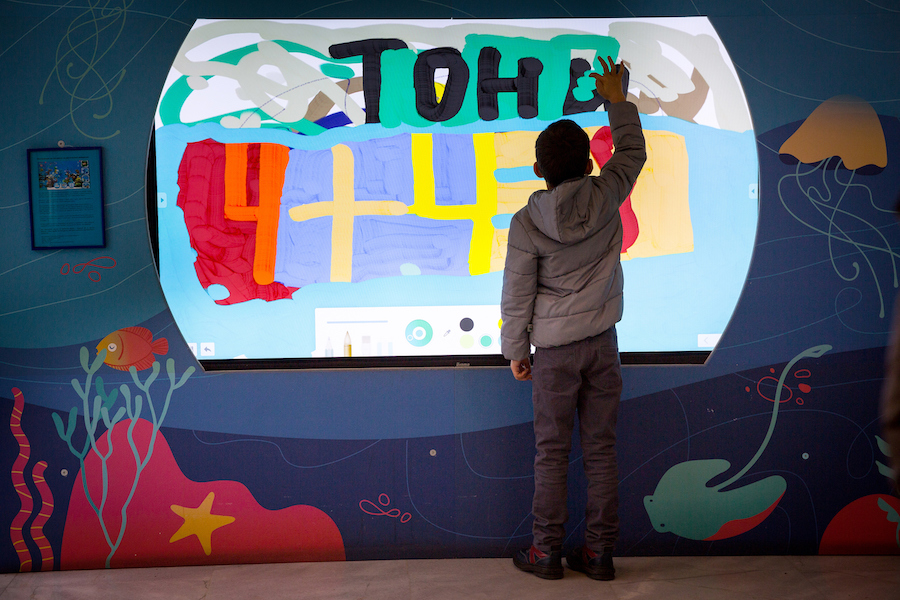 Walking around Pirogov children’s clinics makes you want to be a child again.
Walking around Pirogov children’s clinics makes you want to be a child again.
